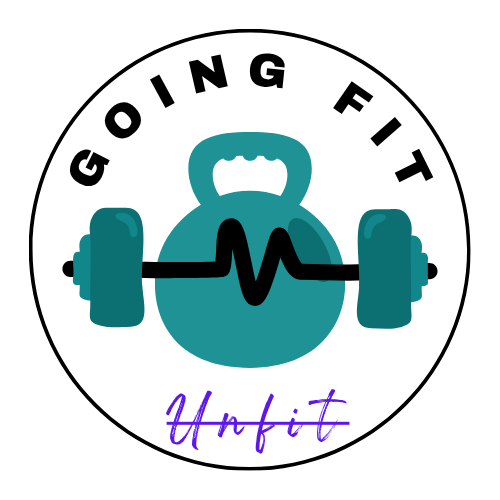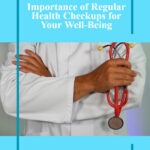Feeling tired all the time, battling mood swings, or struggling to get a good night’s sleep? You’re not alone. These issues can leave you feeling like your body’s working against you, and the culprit might be closer than you think: your hormones and health.
Think of hormones as the control center for your body—when they’re balanced, life feels smooth and effortless. But when they’re out of whack, it’s like a domino effect that impacts your energy, mood, sleep, and so much more.
The good news? You don’t have to stay stuck in the chaos. Understanding how your hormones work and keeping them balanced can be a game changer for how you feel every day. Ready to take control and get your body back on track? Let’s dive in!
H
When Your Body’s Chemical Messengers Are Out of Sync
Hormones are like your body’s internal email system, sending messages to organs and tissues to control everything from energy levels to mood, appetite, and even sleep. These chemical messengers are produced by glands in your endocrine system—like the thyroid, adrenal glands, and pancreas—and work together to keep your body in harmony.
When your hormones are balanced, you feel like you can conquer the world. But when they’re out of balance, it’s like trying to drive a car with a flat tire—frustrating and exhausting. Issues like weight gain, low energy, mood swings, and even difficulty sleeping can all trace back to hormonal imbalances.
Signs Your Hormonal Health Needs Attention
So, how do you know if your hormones are causing trouble? Here are a few telltale signs:
- Feeling sluggish or tired all the time: If you’re getting enough sleep but still feel like you’ve been hit by a truck, your thyroid hormones might be off.
- Sudden weight changes: Unexplained weight gain or loss could be related to hormones like cortisol or insulin.
- Mood swings or irritability: Hormonal shifts, like imbalances in estrogen, testosterone, or serotonin, can play havoc with your emotions.
- Trouble sleeping: If you’re tossing and turning, hormones like melatonin or cortisol could be to blame.
- Low libido: Testosterone and estrogen have a big influence on your sex drive. I’ve noticed that as I near perimenopause, there are definitely changes in my libido.
These symptoms might seem unrelated, but they often share a common culprit: hormones. The good news? With a few lifestyle tweaks, you can help get them back on track.
Your Hormones and Health in Balance
Balancing your hormones doesn’t have to be complicated. Here are some unique and actionable tips to help keep those little messengers running smoothly.
1. Fuel Your Body for Hormonal Harmony
Your diet is the foundation of hormonal health. Think of it like fuel for your body’s engine—high-quality fuel keeps everything running efficiently. Here are some unique ways to eat for balance:
- Cycle Your Carbs: On days with intense workouts, eat more complex carbs (like quinoa or sweet potatoes) to support energy needs. On rest days, reduce carbs slightly to keep insulin levels steady.
- Incorporate Adaptogens: Foods or supplements like ashwagandha and maca root help your body manage stress and regulate hormones naturally.
- Support Your Gut: Fermented foods like kimchi, yogurt, and kefir can improve gut health, which is closely tied to hormone balance.
2. Exercise for Better Hormonal Balance
Exercise is like a magic pill for your hormones. It helps regulate insulin, reduces stress hormones like cortisol, and boosts feel-good chemicals like endorphins. But here’s the thing: too much of a good thing can backfire. Let’s make your workouts more hormone-friendly:
- Do Short Bursts of HIIT: High-Intensity Interval Training (HIIT) can boost testosterone and improve insulin sensitivity. Keep sessions under 30 minutes to avoid overloading cortisol.
- Try Restorative Movements: Exercises like tai chi or stretching before bed can lower cortisol levels and prepare your body for better sleep.
- Focus on Resistance Training: Lifting weights 2–3 times per week can improve testosterone levels and increase lean muscle mass.
3. Make Sleep a Priority for Hormone Reset
Sleep is the unsung hero of hormone health. When you’re snoozing, your body’s like a factory running repairs and maintenance. Here are some unique approaches to improve your sleep hygiene:
- Experiment with Sleep Cycles: Use a sleep tracking app to identify your natural sleep cycles and wake up during light sleep stages for better energy.
- Try Magnesium Supplements: Magnesium glycinate taken before bed can help relax your muscles and improve sleep quality.
- Invest in Weighted Blankets: These can reduce stress and help your body produce melatonin for deeper sleep.
4. Lower Stress to Protect Hormonal Wellness
Stress is like a loud neighbor who disrupts everything. When you’re stressed, your body pumps out cortisol, which can throw off other hormones like insulin and estrogen. Try these creative stress-busting techniques:
- Daily Gratitude Practice: Write down three things you’re grateful for each morning. This helps shift your focus and lowers cortisol.
- Cold Showers: Brief cold exposure can stimulate endorphins and improve your resilience to stress.
- Create “Unplugged” Zones: Set boundaries with your devices and dedicate parts of your home as screen-free spaces.
5. Stay Hydrated and Cut Back on Alcohol
Water is essential for flushing out toxins and keeping your systems running smoothly. On the flip side, too much alcohol can mess with hormone production, especially cortisol and testosterone.
- Add Electrolytes Naturally: Use fresh lemon, a pinch of sea salt, or coconut water in your drinks to stay hydrated and support adrenal function.
- Set a Drink Limit: Limit yourself to one or two drinks per week, and opt for antioxidant-rich options like red wine.
When to Seek Professional Help for Hormones and Health
Sometimes, despite your best efforts, you might need a little extra help.
If you’ve tried lifestyle changes and still feel off, it’s worth consulting a doctor. They can run tests to check your hormone levels and guide you toward treatments or therapies that might help. Think of it as getting a tune-up for your body.
Final Thoughts: Balance Is the Key to Feeling Your Best
Your hormones are like a well-orchestrated symphony—when they’re in tune, everything feels right. By making small, consistent changes to your diet, exercise routine, sleep habits, and stress levels, you can help keep those chemical messengers in harmony.
Remember, no one’s perfect, and it’s okay to have off days. The key is to listen to your body and give it what it needs to thrive. So, how are you taking care of your hormones today? Share your thoughts or tips in the comments below—let’s keep the conversation going!












This is fantastic advice, thank you! I am definitely in need of a hormone reset. I have noticed lately that they are way off, which has me way off as well. I haven’t been sleeping good at all, and I am both tired and irritable all of the time.
You’re so welcome! I’m really glad you found the advice helpful. It sounds like you’re going through a tough time with your hormones being out of balance, and that can definitely take a toll on sleep and mood. I hope you’re able to find some relief soon—small changes can make a big difference. Wishing you restful nights and brighter days ahead!
hormonal changes can be awful. these tips are great!
Thank you! Hormonal changes can definitely be challenging, and I’m glad you found these tips helpful. Wishing you all the best on your journey to balance and well-being.
this is such a constant struggle as we age! thanks for this1
You’re so right! As we age, keeping our hormones in balance can definitely feel like an ongoing challenge. I’m so glad you found the article helpful! Wishing you health and balance on your journey.